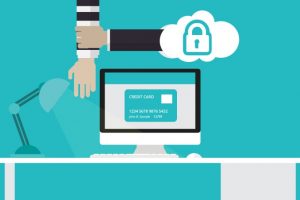This week sees the 18th National Clean Out Your Computer Day, and while It may feel like awareness days are popping up everywhere, this is an important one to take notice of, especially if you value keeping your personal data private. After all, to a criminal your personal or work computer can be a gold mine. If a stranger were to get access to your PC, it is possible that they may even learn enough to steal your identity.
Most of the advice given around Clean Out Your Computer Day concerns a modern type of cleaning – however what is more important than a dust cloth and anti-bacterial screen wipes, is having a decent knowledge of data sanitisation. This includes how to clear your browser and download history, turn off the ‘remember me’ setting for your regular passwords and run anti-virus software to make sure your computer is free from malware.

But, the physical elements of your data and computer hygiene shouldn’t be ignored either. Recent research carried out by consulting firm EY has revealed that over 50% of businesses have increased their cybersecurity budget in the last year. Stricter cybersecurity often means that employees have a wealth of different login details and passwords to remember. However, according to the Password Exposé Report by password manager firm Last Pass, those using the service use an average of 191 passwords each month. This is an alarming statistic given that it is impossible for anyone to remember this many passwords. This is causing some people to share the burden of remembering passwords, with a study undertaken by Deloitte showing that 20 per cent of employees routinely share passwords.
This leads to multiple dangers, including employees writing down passwords or, maybe even displaying them in the office in full view of any visitors. It only takes a moment for the security of a business to be compromised and any digital security measured rendered null and void if, for example, paper documents full of sensitive business data are stolen off an employee’s desk and put into the wrong hands. Just recently the Hawaii Emergency Management Agency came under fire for posting a picture online that had a post-it note in the background that read ‘Password: warningpoint2’.

All of this demonstrates that organisations need to significantly improve, the way that their physical networks and data is looked after. In the same way that a business needs security cameras and access fobs, they also need to improve the data security awareness of their staff, turning them into a key first line of defence. You wouldn’t leave your keys in your front door, so why leave an opening to your corporate network stuck on the front of your PC monitor?
Organisations therefore need to proactively educate their employees on the dangers of leaving sensitive data vulnerable and encourage employees to actively keep paper documents in a secure location, such as a locked drawer.
This National Clean Out Your Computer Day, make sure an office wide spring clean includes your network, processes and data as well as the traditional desk ‘clean-out’.
